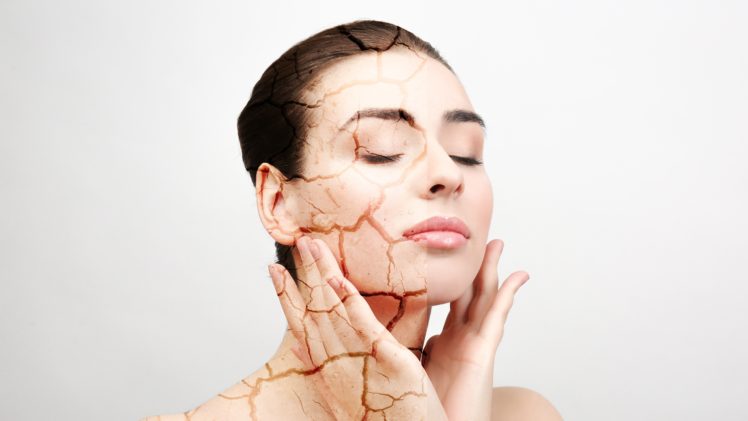Home › Health › Skincare
What You Need to Know About Non-Surgical Facelift
Published on:
After the age of 25, the body ceases to produce hyaluronic acid, collagen, and elastin in the required amount, which leads to loss of firmness and elasticity, flabbiness, and the formation of wrinkles. It is not necessary to visit a plastic surgeon to tighten and rejuvenate the skin. Beauticians offer many options that will help restore elasticity and restore facial features to their former appearance. In this article, we will explain everything you need to know about a non-surgical facelift.
Contents
What is a non-surgical facelift?
A non-surgical facelift is one of the varieties of a whole range of cosmetic procedures that help restore firmness, smoothness, elasticity, and former shape to the skin, tighten problem areas, but without surgical intervention. Each of the procedures is good in its way, refers to minimally invasive techniques, and is performed on an outpatient basis. Most importantly, there are much fewer contraindications to a non-surgical facelift than to surgical intervention, and the recovery period does not take much time. The result after the procedures is noticeable almost immediately.
A non-surgical facelift is based on traumatizing various epidermis layers, which responds to such “aggression” with the active production of collagen and elastin fibers. We can say that the skin rejuvenates itself. It was only pushed to this action. As a result of a non-surgical facelift, you can get rid of many problems: smooth out wrinkles, remove the “double chin,” normalize sebum production, get rid of bags under the eyes, jowls, nasolabial folds, change the shape of the face oval, tighten sagging skin, improve skin turgor, restore the epidermis healthy, beautiful and fresh looking.

Types of non-surgical facelift
There are two main types of a non-surgical facelift: injection and hardware. The former involves the introduction of preparations under the skin that increase tone, smooth wrinkles, stimulate natural regeneration processes at the cellular level, and contribute to overall skin rejuvenation. Hardware methods of non-surgical tightening are performed on special equipment and are based on the action of various types of energy and radiation.

Injection Lift: Main Types
- Thread lifting. Refers to the injection method of non-surgical tightening. The procedure consists in introducing special absorbable threads under the skin using a cannula (a flexible needle that does not injure tissues), which moves the tissues to the desired position. Threads are securely fixed. Thus, a new frame of the face is created, the contours are tightened, and the face looks noticeably younger. The quality of a thread lift directly depends on which threads were used in the lifting process.
- Contour plastic. The procedure is based on introducing fillers (hyaluronic acid preparations) under the skin. Since hyaluronic acid is produced in our body, fillers are completely compatible with the skin and do not cause rejection.
- Biorevitalization. An effective procedure for rejuvenation and skin tightening, which is recommended to be done at the age of 25-35. The method is based on introducing low molecular weight hyaluronic acid under the skin.
- Plasmolifting. An innovative method of non-surgical facelift. The patient’s blood plasma enriched with platelets is injected into the skin. Such injections improve metabolism in cells and tissues, strengthen local immunity, saturate them with oxygen and enrich them with nutrients.
- Mesolifting. One of the varieties of mesotherapy. The procedure involves the introduction of a specially selected complex of active firming substances that help trigger cell renewal, increase blood circulation and saturate the cells with moisture.

Hardware Methods of Skin Rejuvenation: Main Types
- Cryolifting. Hardware method of a non-surgical facelift, which is based on exposure to low temperatures. Due to temperature shock, the effect is achieved: tissues are cooled down to -20 degrees. As a result, the cells begin to synthesize collagen and elastin actively, the work of capillaries increases, wrinkles are smoothed out, the skin becomes noticeably smoother, the face oval is tightened. In addition, cryolifting helps to remove toxins and toxins, eliminates swelling, and normalizes the sebaceous glands.
- RF lifting (radiofrequency lifting). A method based on exposure to radiofrequency waves that warm tissues well. As a result of warming up, collagen fibers begin to contract, elastin is actively produced, metabolic processes improve, and blood circulation increases.
- Photorejuvenation. The essence of this type of hardware method of a non-surgical facelift is the exposure of tissues to high-pulse light. Under its influence, collagen and elastin begin to be actively produced, due to which wrinkles are smoothed out, contours are improved, the skin is tightened, and it becomes younger and more beautiful.
- Laser lifting. Another common and popular hardware method of skin rejuvenation and tightening. Different types of laser radiation are exposed to the skin during the procedure. Subjected to a certain temperature, the tissues begin to recover actively, which explains the pronounced lifting effect.
- Myostimulation. Impact on a specific area of the skin of an electric current, which causes muscle contractions. As a result, blood circulation is stimulated, metabolic processes in cells are enhanced, and skin tone is increased. Myostimulation helps form the correct oval of the face, tighten the “second chin,” smooth out mimic wrinkles, normalize the work of the sebaceous glands, eliminate fat deposits on the skin, flabbiness disappears, age spots lighten, and the number of rashes decreases. The procedure can be performed on people over the age of 25.

Pros and Cons of a Non-Surgical Facelift
Pros:
- The rehabilitation period takes only a few days.
- The minimum number of contraindications to the procedures.
- A positive effect on the entire body by improving metabolism and blood microcirculation.
- There are no scars and scars on the skin, as, for example, after plastic surgery.
- Due to local anesthesia, you do not need to lie in the hospital.
- Relative painlessness of procedures.
- Affordable price compared to surgical techniques.
- Cumulative effect: The result will only increase with each procedure or injection.
- Possibility to combine several procedures at the same time.
Cons:
- There may be adverse reactions or an allergy to the drug used.
- A non-surgical facelift cannot cope with pronounced age-related changes.
- Relatively short-term effect when compared with surgical interventions.
Each non-surgical facelift procedure has its contraindications. So, it is important to study them and consult with a specialist.
Share With Your Friends